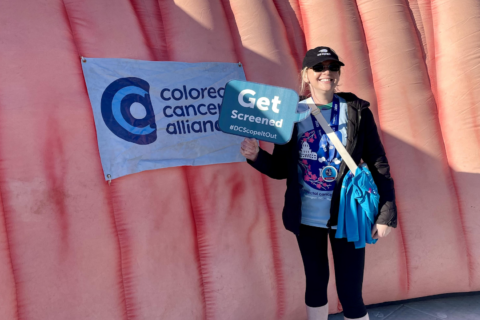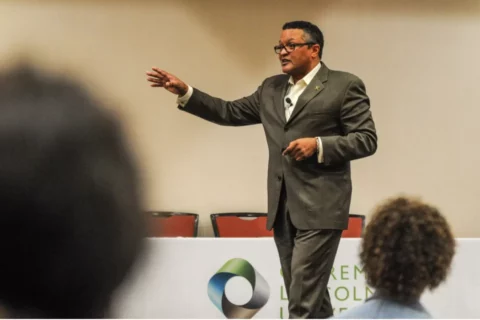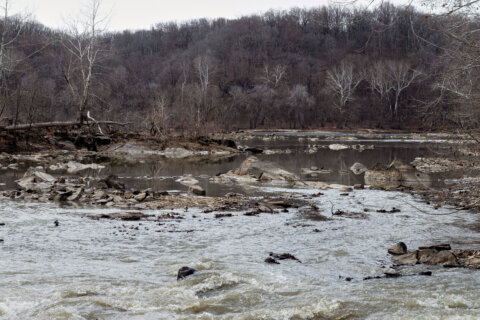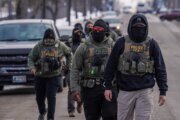This video is no longer available.
A beautiful day and exhilarating hike in Virginia’s Shenandoah National Park turned into an emergency rescue situation for some nursing students from The George Washington University.
“I didn’t wake up thinking I was going to potentially help someone save a limb,” said Brittany Bohn of Arlington, Virginia. “But I’m very grateful that I had at least the first semester of my nursing program already completed.”
Anna Jones, of Lake Anna, Virginia, said she and her husband are very active — biking, snow skiing and hiking — but have never had an accident like she did descending what the National Park Service characterizes as a “challenging hike” at White Oak Canyon Falls.
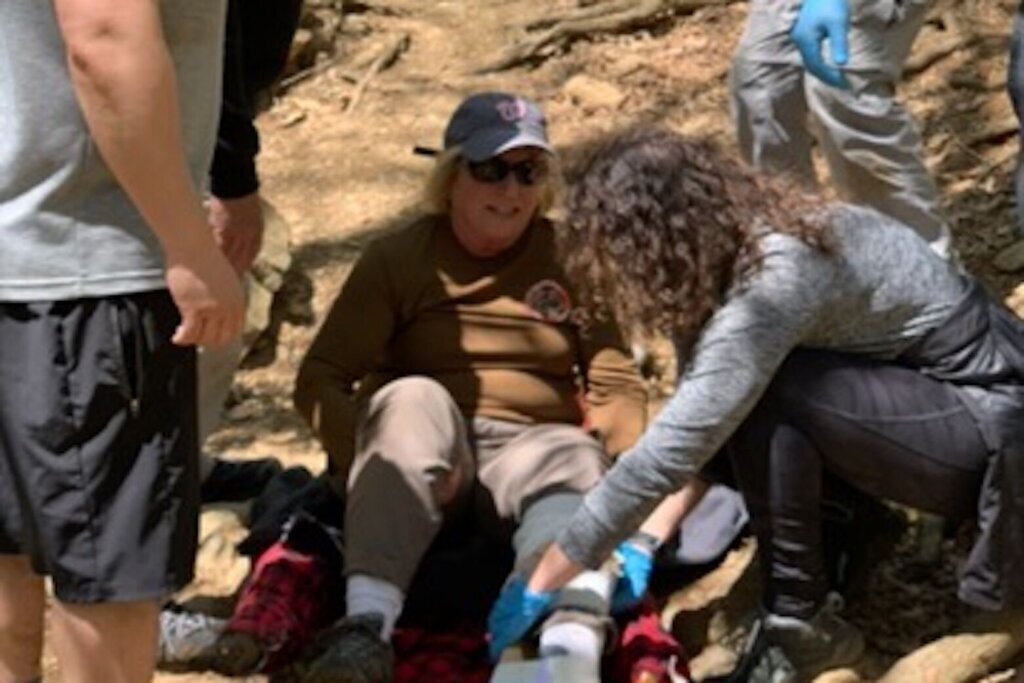
She is now recovering and participating in physical therapy after ankle surgery. The accident happened on April 27.
“Probably 30 minutes into the climb back down, I slipped on a wet rock that went teeter-totter to bit and I came crashing down onto my ankle,” Jones said. “I knew right away that it was a break even though I’d never broken anything before. I could tell from the instant swelling and the pain that something was seriously wrong.”
Bohn said she and fellow nursing student Jose Garcia happened upon Jones, her husband, friends and two REI trail scouts who were trying to figure out how best to get Jones down to the trail head through about two miles of rough terrain.
“It put me at ease, even though the pain was so intense, but I knew I was in good hands at that point, especially when Brittany and Jose showed up,” Jones said.
Jones’ husband, Steve, already had fashioned a splint from sticks for the injured woman’s ankle.
Bohn realized Jones’ foot was swelling so badly that the hiking boot was at risk of cutting off circulation to cause irreparable damage. She used a Swiss Army knife to cut it free.
The two nursing students also accessed Jones’ medical history and current condition; the fall involved Jones sliding down on her back.
“Luckily, it was not a compound fracture. It wasn’t a break through the skin because then that’s a whole ‘nother element of worry,” Bohn said.
Bohn and Garcia both had previous military experience and initially discussed using the fire man carry as a way to transport Jones to help.
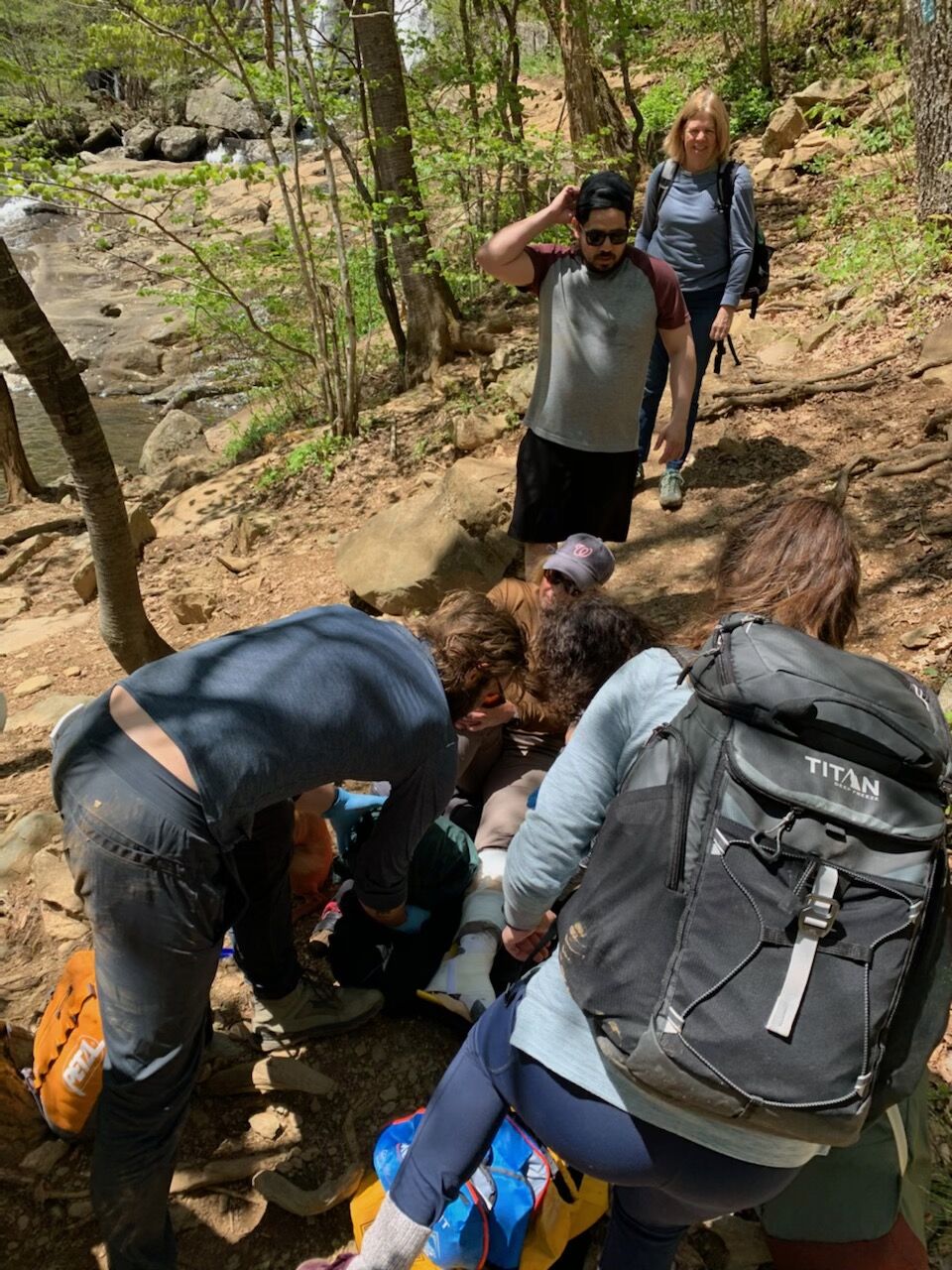
“But we knew that was going to be difficult. We were just really trying to get her out of there as soon as possible, knowing how serious her injury was,” Bohn said.
Garcia had jungle warfare training in the Marine Corps and recalled how to use tree limbs and clothing to make a gurney. The group had enough jackets to fashion a makeshift sled because the day had started off chilly.
“We’re so fortunate that we did run into these trail angels. There’s no doubt that God sent them to us to help to get us down the hill. And, time was of the essence because I was in danger of losing my foot had we been any later to the hospital,” Jones said.
Jones believes the dramatic event taught her an important lesson about being properly prepared.
“To be prepared, more prepared than we were especially — with just some basics of a first aid kit, moleskin (that’s used to cushion against friction and pressure that causes blisters), Tylenol, antiseptic wipes,” Jones said. “We did not know there was no cell coverage, but we should have. When we got there, we realized we did not have any but still did not think about first aid.”
Bohn also has a take away message to share.
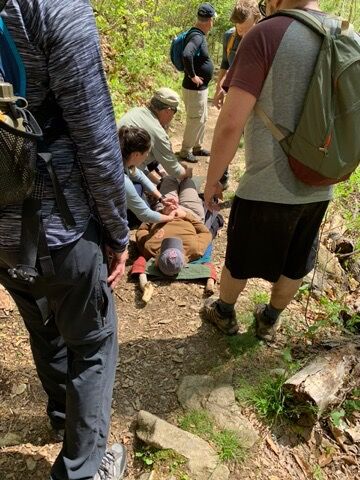
“For me, I would recommend to everybody, not just medical professionals, to have at least a basic understanding of first aid and carry at least a basic first aid kit. As well as (knowing) CPR,” Bohn said. “These are useful skills for anybody. When you’re out in public, you never know if it’s going to happen to your loved one, a stranger, if it’s going to happen to you. And I think it’s reassuring knowing that people out in the community have at least a basic understanding and know how to perform what could be lifesaving skills.”
Talking with each other during WTOP’s interview Jones expressed appreciation to Bohn directly: “Brittany you will always be part of our family forever. Forever family.”
Bohn responded, saying, “I feel the same, Anna, it was really a blessing to meet you that day … I’ll never forget you and Steve and your friends. And I’m so glad that we are now lifelong friends. And we’re always going to stay in touch. And knowing how much of a trooper you are, I know that you’re going to just do great with your recovery. And that you’re not going to give up, and I can’t wait to see you out hiking again. With or without a cane. But I just I’m so happy that you’re improving dramatically.”


